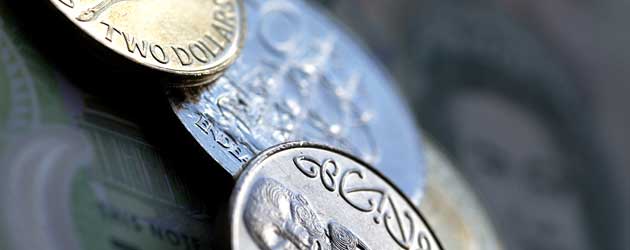
The Pound to New Zealand Dollar exchange rate (GBP/NZD) increased by around half a cent in the immediate response to some Antipodean inflation data late last night. Sterling rallied towards 1.9380 against the ‘Kiwi’ as the New Zealand Consumer Price Index sunk by -0.2% to a 14-year low of 0.7%.
As the relative strength of the New Zealand Dollar continues to make international purchases more affordable in New Zealand price pressures fell to their lowest level since 1999. Lower petrol and car prices had a big impact on the print as New Zealand CPI remained below the Reserve Bank of New Zealand’s 1%-3% target for the fourth consecutive month. The persistently dovish inflation readings suggest that there is room for additional interest rate cuts in the future and this weighed on the ‘Kiwi’.
The New Zealand Dollar traded with a little bit of upward momentum yesterday as traders reacted to the latest Chinese GDP report. Data showed that China expanded at a reduced pace of 7.5% in the second quarter as the Chinese dragon continued to see its flame deteriorate. Chinese Retail Sales advanced by a stronger-than-expected 13.3%, whilst Industrial Production stalled from 9.2% to 8.9%. The slightly bearish report led some market-players to believe that the Chinese government will introduce further stimulus later on in the year to ensure that the country meets its 7.5% annual growth target for 2013.
Dariusz Kowalczyck of Credit Agricole said that: “We will see some targeted measures to stimulate growth” and it is this dovish outlook that supported the risk-correlated New Zealand Dollar yesterday.
Sterling settled around the 1.9320 mark against the ‘Kiwi’ earlier this morning as sentiment in the Asian-Pacific region was shored-up by a less-dovish-than-anticipated Reserve Bank of Australia Minutes report. The RBA noted that:
“Given the exchange rate adjustment that was occurring, and with the substantial degree of monetary stimulus already in place, members assessed the current state of policy to be appropriate for the time being”.
The Pound fell by -0.7 cents against the Australian Dollar in response to the minutely optimistic Australian Central Bank statement, however, demand for the Antipodean Dollars remained capped as the RBA commented that further easing remained a possibility subject to future performances in the domestic economy:
“The inflation outlook, although slightly higher because of the exchange rate depreciation, could still provide some score for further easing, should that be required to support demand.”
Later today the British Consumer Price Index is predicted to accelerate from 2.7% to 3.0%. A reading of this magnitude could lend the Pound some support if investors feel that overshooting inflation could prove enough of a deterrent to postpone further monetary loosening measures from the Bank of England. The BoE has previously predicted that CPI inflation will reach 3.0% in 2013 before falling back down again towards the 2.0% target and for this reason the possibility exists that Sterling will not be able to rally too strongly against the Australian and New Zealand Dollars. Alternatively, a softer-than-expected print carries the potential to set off a cascade of Sterling falls.

Comments are closed.